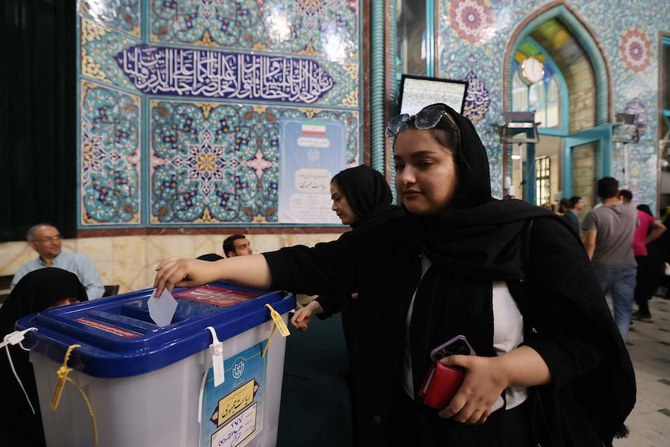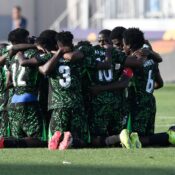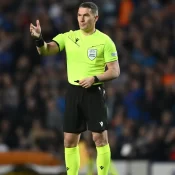
Iran elects a new president despite voter disinterest and growing pressure
Following the death of Ebrahim Raisi in a helicopter crash, Iranians voted on Friday for a new president. Amid mounting popular dissatisfaction and pressure from the West, voters selected one of four closely monitored candidates who were allies of the supreme leader.
The election takes place at a time when regional tensions are rising as a result of the conflict between Israel and Iran’s allies, Hamas in Gaza and Hezbollah in Lebanon, and growing pressure from the West on Iran over its rapidly developing nuclear program.
Although a significant change in the Islamic Republic’s policy is improbable, the results of the election may have an impact on the 85-year-old supreme leader of Iran, Ayatollah Ali Khamenei, who has held the position since 1989.
In order to counteract a crisis of legitimacy brought on by public unhappiness with economic hardship and restrictions on social and political freedom, Khamenei urged for a large participation.
After casting his vote, Khamenei said on state television, “The durability, strength, dignity and reputation of the Islamic Republic depend on people’s presence.” “High turnout is a definite necessity.”
Given that Khamenei has final say over all things of great national importance, it is unlikely that the incoming president will bring about any significant changes to Iran’s nuclear program or its backing of paramilitary groups throughout the Middle East.
But the president is in charge of the administration on a day-to-day basis and has the power to shape Iran’s foreign and internal policies.
From an initial pool of 80 applicants, just six were authorized by a hardline watchdog panel consisting of six clerics and six jurists who were in line with Khamenei vets’ positions. Two of the more extreme contenders later withdrew.
ONE RELATIVE MODERATE, THREE HARDLINE CANDIDATES
One candidate is a low-key moderate who is supported by the reformist group that has been mostly marginalized in Iran in recent years, while the other three are hardliners.
The legitimacy of Iran’s religious leadership has weakened, according to critics of the system’s low and declining turnouts in recent years. In the 2021 presidential election, just 48% of people cast ballots, while in the March legislative election, turnout fell to a historic low of 41%.
On state television, lines could be seen inside polling places in a number of cities. Due to popular demand, voting was prolonged twice for a total of four more hours, ending at 1830 GMT, according to official TV. In Iran, voting hours are typically extended until midnight. The outcome, according to the authorities, will be revealed on Saturday.
On the first Friday following the results announcement, a run-off between the top two candidates takes place if no candidate receives at least 50% plus one vote from all ballots cast, including blank votes.
Among the prominent hardliners who still hold positions are Saeed Jalili, a former nuclear negotiator who held Khamenei’s office for four years, and parliament speaker Muhammad Baqer Qalibaf, a former commander of the formidable Revolutionary Guards.
With the United States pulling out of Tehran’s 2015 nuclear agreement with six superpowers, the economy has been plagued by mismanagement, official corruption, and sanctions that have been reinstated since 2018. All four contenders have pledged to turn the economy around.
“I believe Jalili is the only contender who brought up the subjects of justice, combating corruption, and elevating the status of the underprivileged… Above all, he makes no connection between Iran’s foreign policy and the nuclear agreement,” stated Farzan, a 45-year-old artist from Karaj.
PARTITIONED VOTER
Massoud Pezeshkian, Iran’s lone comparative moderate, supports economic reform, social liberalization, political pluralism, and détente with the West while remaining obedient to the country’s theocratic government.
Pezeshkian gave his vote and stated, “We will respect the hijab law, but there should never be any intrusive or inhumane behavior toward women.”
He was making reference to the young Kurdish woman Mahsa Amini’s 2022 death while under the morality police’s detention for allegedly disobeying the obligatory Islamic dress code.
Following Amini’s passing, there was the largest demonstration of defiance against Iran’s clerical leadership in recent memory.
Reviving the excitement of reform-minded voters, who have primarily avoided the polls over the last four years as a largely youthful population chafes at political and social constraints, is essential to Pezeshkian’s hopes. Additionally, he can profit from his competitors’ inability to unite the hardline vote.
Architect Pirouz, 45, stated, “I feel Pezeshkian represents both traditional and liberal thoughts.” He had intended to abstain from voting until he had more information about Pezeshkian’s agenda.
Iranians have been using the hashtag #ElectionCircus on X extensively in recent weeks. Some domestic and international activists have called for a boycott, arguing that a large turnout would only help to legitimize the Islamic Republic.
“Young girls were slaughtered on the streets… the youngsters were punished… We find it difficult to move past that. It’s unthinkable to vote after everything that happened, “said writer Shahrzad Afrasheh, 55.
According to rights organizations, thousands were detained, hundreds were injured, and over 500 people—71 of them were minors—were killed during the 2022–2023 protests.
All Categories
Recent Posts
Tags
+13162306000
zoneyetu@yahoo.com



